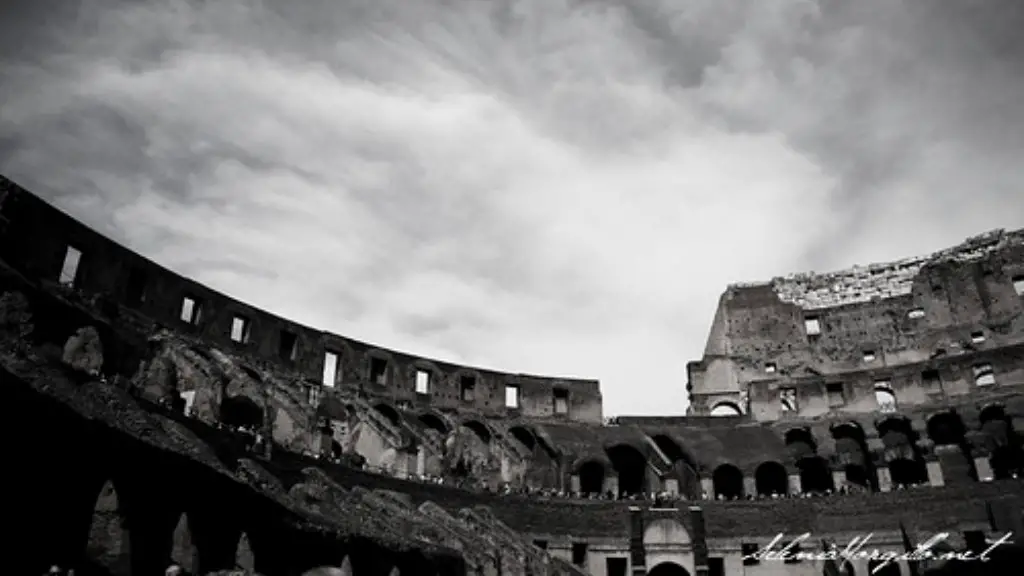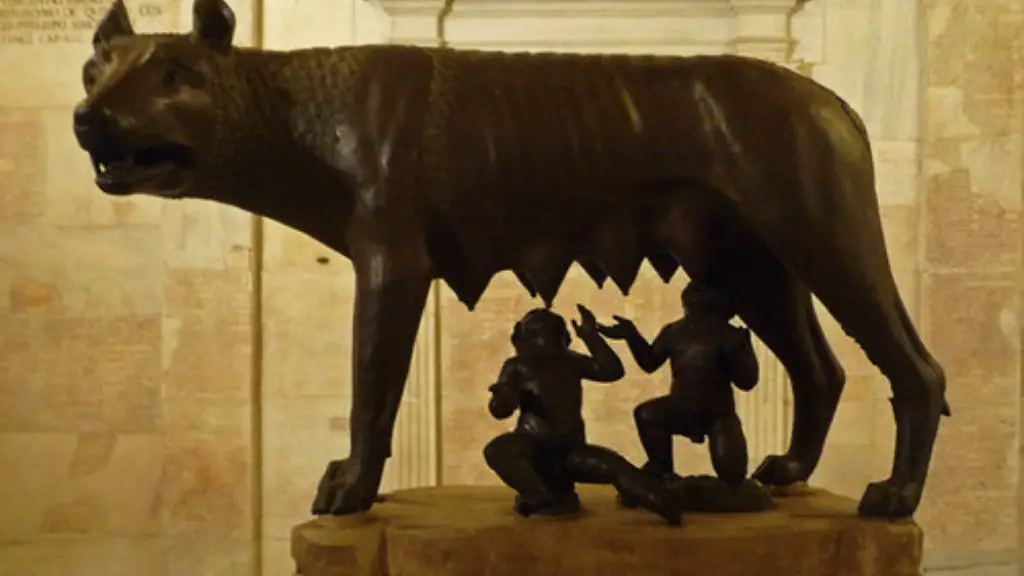At the start of the first century BC, Latin was given official status by law in Rome, and the Latin language became one of the most widely-spoken languages of the ancient world. Latin was the language spoken by the Ancient Romans and was the official language of the Roman Empire and its provinces. Latin played an important role in shaping the development and spread of various languages throughout the world, both in the ancient and modern times. Latin was the basis of several Romance Languages spoken today, such as French, Italian and Spanish, as well as many other European languages.
Latin was the language of administration and commerce, used by merchants and traders. Latin literature was abundant and formed the foundation of much of the Classical literature that was studied until the 21st century. Latin was widely distributed and understood by people, and became the language used in all the public announcements, laws, and decrees made by the Roman government. Roman citizens were expected to be familiar with it, and it was the language used in school and higher education in the Roman Empire. It was also the language spoken by the Roman soldiers, who often went on military campaigns to different parts of the world, spreading Latin as far as England, Palestine and Persia.
The Latin language evolved over time, absorbing elements from the languages spoken by other cultures that were captured by the Roman Empire. For example, the Latin word for “beet” was derived from the ancient Greek word for “beta” and the Latin word for “coffee” was derived from the Turkish language. Despite this integration of other languages, the majority of words in the Latin language can be traced to the root language of the Roman people, which was an Indo-European language.
The decline of the Roman Empire in the 5th century also saw the decline in the usage of Latin, as the Roman Empire fragmented and different cultures, languages and dialects developed in different parts of Europe. Latin persisted, however, in the West as it remained the language of the Roman Catholic Church and the language used in education. It was only in the 19th century, with the advent of nationalism in Europe, that Latin began to decline in importance and usage.
Today, Latin is still used in some parts of Europe, for example in the Latin Mass in the Roman Catholic Church. Latin is also studied in many colleges and universities around the world, as it is an important part of the cultural heritage of the Western world. Furthermore, many legal contracts, foreign names and words used in the scientific and medical field are derived from Latin.
History of Latin in Rome
Latin was not the original language of the Romans. It is believed that the ancient Romans spoke a language derived from the Sabellic language, which is a cluster of languages that were spoken in central and southern Italy before the Roman conquest. After the fall of the Roman Empire in the 5th century, Latin evolved over time, incorporating elements from other languages, such as Greek and Gothic.
Much of Roman culture was based around Latin, as religious ceremonies and public announcements were conducted in Latin. Latin was the official language of the Roman Empire, and was used for the purpose of administration and commerce. In the Imperial Library of Rome, Latin was the language of scholarship, and many of the great Latin authors, such as Virgil, Cicero and Ovid, lived during this time. Latin literature was rich and heavily influenced the development of Western literature.
Latin was the language of education in the Roman Empire, and many of the Latin authors of the Classical period, such as Pliny, Seneca and Terence, used Latin as a medium of instruction in their schools. Latin also became an important language for science and philosophy as many of the great thinkers of Antiquity, such as Claudius Ptolemy and Galen, wrote their works in Latin.
Influence of Latin Language
Latin has had an immense influence on the development of the numerous languages spoken today in the Western world, as many of its words and phrases are still used in modern day English. Latin was the official language of the Roman Empire and was widely used in its provinces throughout Europe, Africa and the Middle East. As Rome conquered these regions, Latin was introduced to their cultures and was soon used in their daily lives.
Latin thus became the basis of many modern Romance languages such as French, Spanish, Portuguese and Italian. Latin also had an immense influence on English and German, as many English and German words were derived from the Latin language. Latin has also been an important source of many words and phrases used in the scientific and medical field in the modern day.
Revival and Relevance of Latin
Latin regained its importance during the Renaissance, when classical education was revived and it was used as the main language for teaching. During the 16th to 18th centuries, Latin literature was revived, and many authors in this era wrote works in Latin such as Milton and Erasmus. In some parts of Europe, Latin was also used as a language of diplomacy and administration.
Today, Latin is still used in parts of the world, for example in the Latin Mass of the Catholic Church and in Latin names. Latin is studied as a scholarly language in many universities, as it is considered an important part of the cultural heritage of Europe. Furthermore, Latin remains an important language of the scientific and medical fields, as many terms in these fields were derived from Latin.
Future of Latin
As Latin no longer plays an important role in communication, and with globalisation having a large impact on the development of languages, it is no surprise that the usage of Latin is declining. Latin is no longer spoken as a native language, but it is still studied, taught and used in some parts of the world.
Nevertheless, Latin language and literature remains an important part of the cultural heritage of Europe, and many future generations of students may still find it a worthwhile and enriching subject. While Latin may no longer have a significant role in daily life and communication, its influence can still be seen, many centuries after its initial emergence, in various dynamics of the modern world.
Latin and Modern Society
Latin is not only valuable from an academic perspective, but it also has relevance in today’s society. Many words that are used commonly in English, for example, have their origins in the Latin language. Latin has had an immense influence on the development of the numerous languages spoken today in the Western world, and it is also still used in some parts of the world, such as in the Latin Mass of the Catholic Church. Latin is also often used in legal and scientific fields, as many words and phrases derived from Latin.
Additionally, Latin is frequently used in the art and fashion industries, as it brings an element of tradition, sophistication and elegance to the piece. In this respect, Latin is still appreciated and valued in modern society, and it is likely to remain a relevant and important language for many years to come.
Latin and Education
Latin is frequently taught in international schools and universities worldwide as part of the history curriculum. It is also taught in order to gain insight into the cultural and intellectual history of the Western world and its profound literary legacy. Latin language and literature provide a wealth of knowledge and insight into the cultures and people of the time.
Today, Latin remains a language of scholarship, as many of the great texts of the Western world were written in Latin. Furthermore, learning Latin provides useful insight into the structure and literary style of the Romance languages, such as French, Spanish and Portuguese. Apart from its historical and academic value, Latin also provides an important context for further exploration and learning.
Conclusion
In conclusion, Latin is a language that is rich in history and has had an immense influence on the development of the numerous languages spoken today in the Western world. Latin is no longer spoken as a native language, but it is still studied, taught and used in some parts of the world. Latin is also often used in the art, fashion and legal fields. Latin language and literature remain an important part of the cultural heritage of Europe, and many future generations of students may still find it a worthwhile and enriching subject.




